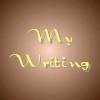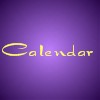|
Accuracy, Part III
Writing relies on accuracy. It doesn't help to make that one mistake if someone more knowledgable than you catches it and starts telling everyone you're an idiot. Your writing career will make a drastic turn for the worse right away.
This applies much more to non-fiction than to fiction. Non-fiction is, simply, factual information. It's vital that you have accuracy to prevent deception. Any high school history teacher in this country will agree with that statement and immediately start complaining about their textbooks. I know two history teachers, and both are disgusted with not only their books, but the Texas academic standardized test (TAKS) because it reinforces inaccurate, incomplete, or even incorrect information. For example:
|
Presented Information: Sam Houston, the "Father of Texas", is presented as a grand statesman, senators for Tennessee and Texas, led Texas to independance against Mexico, and later became its two-time president and multi-time governor. He's presented as a hero, a man to be looked up to.
Incomplete. While the historical information is true, they leave out that he was a slaveowner who used his power to fight for slavery. In fact, his own state turned on him after he presented a speech on April 2, 1861, opposing secession because he thought the North could not be defeated--not because he was against slavery, which he was not. Two days later, he was removed from office and Texas seceeded, anyway. He was seen as opposing slavery, though, and summarily removed. If he were against slavery, he would have never been elected governor of a slave state. Among other slaveowners were George Washington and Thomas Jefferson, who both released their slaves in the name of freedom.
|
|
Presented Information: History books depict Christopher Columbus as a native of Genoa, Italy, who became a merchant and sought out the New World by gaining funding from Ferdinand and Isabella because he wanted to prove the world was round.
Incorrect. About the only thing right in this information is his connection to Italy. He did not speak Italian, and did not even write in Italian in his letters to his family in Genoa, who probably moved there later. Second, he was a trader, not a merchant; traders were more middlemen, like wholesalers, while merchants are closer related to retailers. Third, there is no proof of where the money came from; Ferdinand and Isabella has little money and were fighting against the Muslims, so they could not risk such an extreme endeavor. But finally, it had been proven ages before that the world is round. Everyone wanted a new trade route to Asia because every land route went through the Ottoman Empire, who taxed anything entering or leaving the Empire--four tax payments in one trip! So, Columbus (real name: Christolph Colombo) set out to find another route.
|
|
Presented Information: The original documents of the Bible are in human hands today.
Inaccurate. The "original Hebrew texts", as they have been called, were actually translated by the Masorites of the eighth century. They used the Latin Vulgate (c. AD 500), which were translations from the Arabic translations (AD 280), which were translated from Greek Septuagint (c. 180 BC), which were translated from the original Hebrew, which promptly vanished. While much is still accurate, pieces of earlier texts (pre-Masoretic text) have been found which do not fully agree with the Masoretic text. The result is that all who call themselves Christians do not know what their Holy Book is supposed to say, only the current mistranslations.
|
As you can see, accuracy is vital to communication. In fiction, it can also be important. For example, I knew someone who wrote a short story, was proud of it, exited, best story he'd ever written! I told him it was a great story, but the central element of the story involved the "fact" that the toilet couldn't be flushed during a blackout. Toilets run entirely on water pressure. (I still feel bad for him to this day, because it really was a great story!)
Then accuracy means tying otherwise insignificant elements into realistic situations, such as a man's girlfriend staring at you lovingly with her gorgeous blue eyes--which, your male character noticed earlier, are green.
This is the purpose of the editing loop, which I'll get to at a later date.
There are four steps to being accurate. They are:
- Admit you may be wrong
- See what is not fully explained, incomplete, or doesn't make sense
- Research the material
- Be crystal clear
I'll talk about these individually over my next few blogs.
|







